-
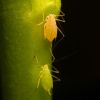 +19 +1
+19 +1Genes that jump species: does this shake the tree of life?
Genes that leap from one species to another are more common than we thought. Does this shake up the tree of life? Fay-Wei Li stepped out of his car and looked around. There was not much to see aside from an old wooden fence and a soggy ditch strewn with roadside detritus. Could this really be the spot? A biologist at Duke University, Li had driven seven hours from North Carolina to these exact coordinates in Florida in search of hornworts: the living descendants of...
-
 +36 +1
+36 +1This common bacterium grows 60% better in space than on Earth
It’s something that no one can explain right now, but scientists have found that of the 48 harmless bacteria strains they’ve been raising on the International Space Station, one has not just adapted to its new microgravity environment some 400 km above Earth - it prefers it. According to a new study, Bacillus safensis JPL-MERTA-8-2 - a strain that was first discovered on one of the Mars Exploration Rovers at the Kennedy Space Center in Florida before they...
-
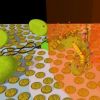 +22 +1
+22 +1New technique for rapidly killing bacteria using tiny gold disks and light
Light-activated gold nanoparticles destroy potentially deadly bacterial cells in seconds. The method could one day help hospitals treat some common infections without using antibiotics, which could help reduce the risk of spreading antibiotics resistance. (Mar. 17)
-
 +18 +1
+18 +1Can a Living Creature Be as Big as a Galaxy?
Why life is constrained to be about the sizes we see on Earth. By Gregory Laughlin.
-
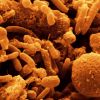 +37 +1
+37 +1How The Bacteria In Your Gut Could Be Used To Treat Mental Illness
New research finds that altering gut bacteria in mice changes the way their brains work.
-
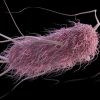 +38 +1
+38 +1Scientists Turn Bacteria Into Living Hard Drives
By feeding strings of human-written data into colonies of bacteria, scientists have discovered a way to turn tiny cells into living, squirming hard drives. A team of Harvard scientists led by geneticist Seth Shipman has just developed a fascinating way to write chunks information into the genetic code of living, growing bacterial cells. It could be the code for a computer program or the lines of a poem. Either way, these living memory sticks can pass this data onto their descendants, and scientists can later read that data by genotyping the bacteria.
-
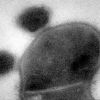 +51 +1
+51 +1New life form discovered in saliva is linked to human disease
Parasitic bacteria that are entirely dependent on the other bacteria they infect have been discovered for the first time, in human spit. The tiny cells have gone undetected for decades, but appear to be linked to gum disease, cystic fibrosis and antimicrobial resistance. We only know of one other strain of bacteria that can infect other bacteria, but this type, called Bdellovibrio, is a free-living cell that hunts down its prey. The newly discovered organism has very few genes and is dependent entirely on its host. The parasite, which appears to make its host more harmful to humans, evaded our detection until now because...
-
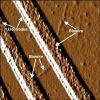 +25 +1
+25 +1'Green' electronic materials produced with synthetic biology
Scientists at the University of Massachusetts Amherst report in the current issue of Small that they have genetically designed a new strain of bacteria that spins out extremely thin and highly conductive wires made up of solely of non-toxic, natural amino acids. Researchers led by microbiologist Derek Lovely say the wires, which rival the thinnest wires known to man, are produced from renewable, inexpensive feedstocks and avoid the harsh chemical processes typically used to produce nanoelectronic materials.
-
 +27 +1
+27 +1Scientists may have found a way to extend the shelf life of milk to two months
Milk, the first thing mammals consume after birth, is full of protein, vitamins, and minerals. But it doesn’t keep very long. That’s because raw milk is also full of bacteria. How long it stays fresh depends on how it’s treated. Most supermarket milk has been pasteurized and if unopened can keep in the fridge for around a week. Milk that is heated to temperatures above 135ºC (275 °F) can keep as long as six months at room temperature if unopened. But ultra-high temperature milk doesn’t taste very good.
-
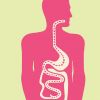 +33 +1
+33 +1Is your gut making you sick?
A gut full of diverse microbes – bacteria, viruses and fungi – is essential for a healthy mind and body. And evidence is growing that our modern diet, overuse of antibiotics and obsession with cleanliness are damaging the diversity of microbes that live in our guts, contributing to a range of conditions including depression, multiple sclerosis, obesity and rheumatoid arthritis. Microbes live in our guts, bodily fluids, cavities and skin. For every one of our human cells, there’s at least one of them.
-
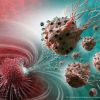 +19 +1
+19 +1Legions of nanorobots target cancerous tumours with precision
Researchers from Polytechnique Montréal, Université de Montréal and McGill University have just achieved a spectacular breakthrough in cancer research. They have developed new nanorobotic agents capable of navigating through the bloodstream to administer a drug with precision by specifically targeting the active cancerous cells of tumours. This way of injecting medication ensures the optimal targeting of a tumour and avoids jeopardizing the integrity of organs and surrounding healthy tissues. As a result, the drug dosage that is highly toxic for the human organism could be significantly reduced.
-
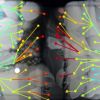 +31 +1
+31 +1Stunning Videos of Evolution in Action
The MEGA-plate allows scientists to watch bacteria adapting to antibiotics before their eyes.
-
 +2 +1
+2 +1How Big Pharma’s Industrial Waste Is Fueling the Rise in Superbugs Worldwide
Pharmaceutical companies are fuelling the rise of superbugs by manufacturing drugs in factories that leak industrial waste, says a new report which calls on them to radically improve their supply chains. Factories in China and India – where the majority of the world’s antibiotics are produced – are releasing untreated waste fluid containing active ingredients into surrounding areas, highlights the report by a coalition of environmental and public health organisations.
-
 +16 +1
+16 +1The 25-year-old Malaysian Chinese who may have just solved the superbug problem
She is all of 25 and may have already made one of the most significant discoveries of our time. Scientists in Australia this week took a quantum leap in the war on superbugs, developing a chain of star-shaped polymer molecules that can destroy antibiotic-resistant bacteria without hurting healthy cells. And the star of the show is 25-year-old Shu Lam, a Malaysian-Chinese PhD candidate at the University of Melbourne, who has developed the polymer chain in the course of her thesis research in antimicrobials and superbugs.
-
 +31 +1
+31 +1Marsquakes Could Potentially Support Red Planet Life
Marsquakes — that is, earthquakes on Mars — could generate enough hydrogen to support life there, a new study finds. Humans and most animals, plants and fungi get their energy mainly from chemical reactions between oxygen and organic compounds such as sugars. However, microbes depend on a wide array of different reactions for energy; for instance, reactions between oxygen and hydrogen gas help bacteria called hydrogenotrophs survive deep underground on Earth, and previous research suggested that such reactions may have even powered the earliest life on Earth.
-
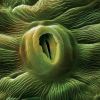 +28 +1
+28 +1It’s biology Jim, but not as we know it...
Primed for his appearance at Lab Innovations – we hear from physicist and all-round science hero Professor Jim Al-Khalili OBE on quantum biology.
-
 +24 +1
+24 +1How to Kill Antibiotic-Resistant ‘Superbugs’ Without Antibiotics
Because “superbugs” like MRSA no longer respond to traditional antibiotic treatments, researchers are locked in a constant microscopic arms race to develop new antibiotics that effectively counter increasingly resistant opportunistic bacterial strains. Recently, a 25-year-old doctoral student developed an entirely new technique for combating superbugs- and without using antibiotics... By Zayan Guedim.
-
 +30 +1
+30 +1The Biggest Saber Cat
A fossil skull from China represents one of the largerst saber-toothed carnivores of all time. By Brian Switek.
-
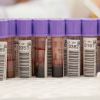 +19 +1
+19 +1Scientists Have Identified an Antibody That Neutralises 98% of HIV Strains
Scientists have discovered an antibody produced by an HIV-positive patient that neutralises 98 percent of all HIV strains tested - including most of the strains that are resistant to other antibodies of the same class. Due to HIV’s ability to rapidly respond to the body’s immune defences, an antibody that can block a wide range of strains has been very hard to come by. But now that we’ve found one, it could form the basis of a new vaccine against the virus.
-
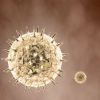 +2 +1
+2 +116% of Cancers Are Caused by Viruses or Bacteria
Strictly speaking, cancer is not contagious. But a fair number of cancers are clearly caused by viral or bacterial infections: lymphomas can be triggered by the Epstein-Barr virus, which also causes mononucleosis. Liver cancers can be caused by Hepatitis B and C. Cervical cancers can be caused by human papillomavirus, the major reason behind the development of a vaccine against it. For some of these cancers, nearly 100% of the cases have an infectious link...
Submit a link
Start a discussion




















